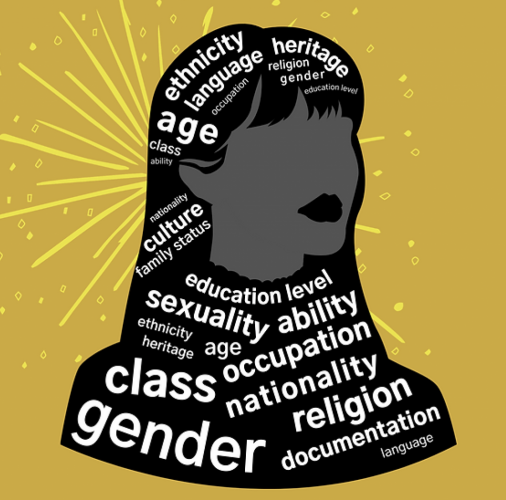9.01.22
Digital Pedagogies Open Studio’: disruptions, interventions and techno-empathy, Lee. Campbell,
- Technoparticipation
- Creative Disruption – Disruption forces one to find an orientation.
- Maggi Savin-Baden (2007), suggests that interruptions can provoke self-reflection and deep critical thinking
- Getting out of habit = away from automation = new ways of thinking
- The creative act, by connecting previously unrelated dimensions of experience, enables him to attain to a higher level of mental evolution. It is an act of liberation – the defeat of habit. (Koestler, 1970, p. 9)
DPOS – Digital Pedagogies Open Studio
- online space for staff and students, guest speakers sharing experiences
- guests contribute to questions during a conversation – aim to start and sustain discussion about online knowledge exchange
- explore how technology can be “used as both the form and content for being creatively disruptive.” (pg 9 line1)
- “We have a responsibility to pause, be critical and approach the online environment though a questioning way” pg9 line 5
- performative events = tutorials, seminars, workshops & other education formats = opportunity to develop autonomous learning and self-reflection (DPOS encouraging this whilst being critical of it)
- Sees value in tech disruptions/ glitches – materiality of the digital space (example ‘technological uncanny’ = attempting to look at each other at same time) Acknowledgement of digital form informing learning exchange / connections
- what is altered, compromised, enhanced through digital display?(painting, sculpture, performance art) “How can the digital positively disrupt our ways of thinking around presence, encounter and engagement?”
- ‘We are connected now but at the same time we are geographically in different spaces. We may feel more connected to students because of the intimacy. Or is there a disconnection? Those two things happening at the same time – multiple things happening in this liminal space – is it amplifying or is it restricting?’ – Natasha Sabatini
- (teaching) practices are fluid, responsive to contingent and changing conditions – through reflection of changes and mediation on the experience “we open up potentially newways of thinking about physicality, affect and presence”
TechnoEmpathy
- how is empathy and community built when we work/ live online?
- students and staff empathized with each other during the move to online teaching (tech difficulties on both end, total change to ways of teaching and learn, limited access to equipment/ traditional fabrication methods) = “collective technoempathy”
Seeing and being seen
- Lee’s work – queer (in)visibility – using zoom and green screen as a tool
- not being in a group, but looking at a group (breakout rooms)
- being looked at and conscientious of being looked at – camera and screen bring focus to being perceived, viewed, unmet gaze – not able to look anyone in the eye (distraction and interruption to learning?)
Conclusion
- students like/ find it more comfortable to engage through chat, no camera (I personally find this difficult to connect/ check in with students/ measure room – can be quite lonely working as a tutor if no students interact with you, uncertain, demoralising, faceless)
- online experience builds community and vunerablilty
- No longer hostage to the online platform but an agent Imagining beyond its constraints
Teaching the tangible, remotely: Fashion as Material Culture, Clare Loma
Thoughts
Pedagogy of the Oppressed, Paulo Fiere
- Critical pedagogy = teaching practices informed by culture and political environment
- Intersectional approach to teaching and learning
- Brazil 1920/30’s (poor and hungry – these experiences shaped his learning “I didn’t understand anything because I was hungry” social class and knowledge are inherently linked
- Education is not just about exchange of information from tutor to student (not banking approach – piggy bank retaining knowledge that has been put there)
- Education should be a dialogue and tied to world that students live in (teacher lives in culture and environment, speak their language, to develop touchstones (words, ideas, cultural values) that demonstrate the purpose and value of learning) students drive the MEANING MAKING of education
- Active tools demonstrated rather than abstract theories
- Education should set you free (coming from the view point of an oppressed country)
- Blending of knowledge exchanges between staff and students
- Critical consciousness – allowed to question the nature of your political and social situation and history
- If your country wants you to be oppressed it will limit your learning in order to maintain control
- Actively cultivated community and co-operation through exchange (of culture and knowledge)
- provides you with tools to understand your surroundings – fosters democracy
- Education should be actively useful to students (praxis = theory in active way = putting theory into action)
- How can this education be used as a tool to improve situation, democracy for both students and teachers
- Fostering idea that you are a person who can learn things and constantly (re)build yourself
- Applied knowledge
MAIN IDEAS
Education should not be a one way street but a dialogue
communication between teacher and community
Education can not and should not be divorced from politics
One size fits all education reinforces the oppressor = presenting emulation models
The oppressed must be their own example in the struggle for redemption
How do the generationally oppressed get out of that – education outside of oppressor/ oppressed dynamic
